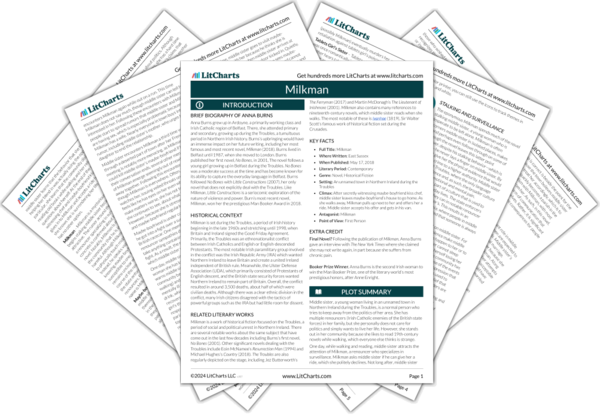The narrator’s mother has her biases and traditional tendencies, which often do more harm than good. However, her reasoning is not devoid of practical consequences. She has already lost one daughter to religious conflict, and she will do everything she can to avoid losing another. Notably, this is not an irrational fear of hers, but rather one she shares with the women of the community, who know from experience what can happen when someone marries outside of their religion. The mother’s concerns reinforce the novel’s broader focus on the intersection of the personal with the political. In the fraught political atmosphere of the narrator’s world, even love becomes a political statement.


